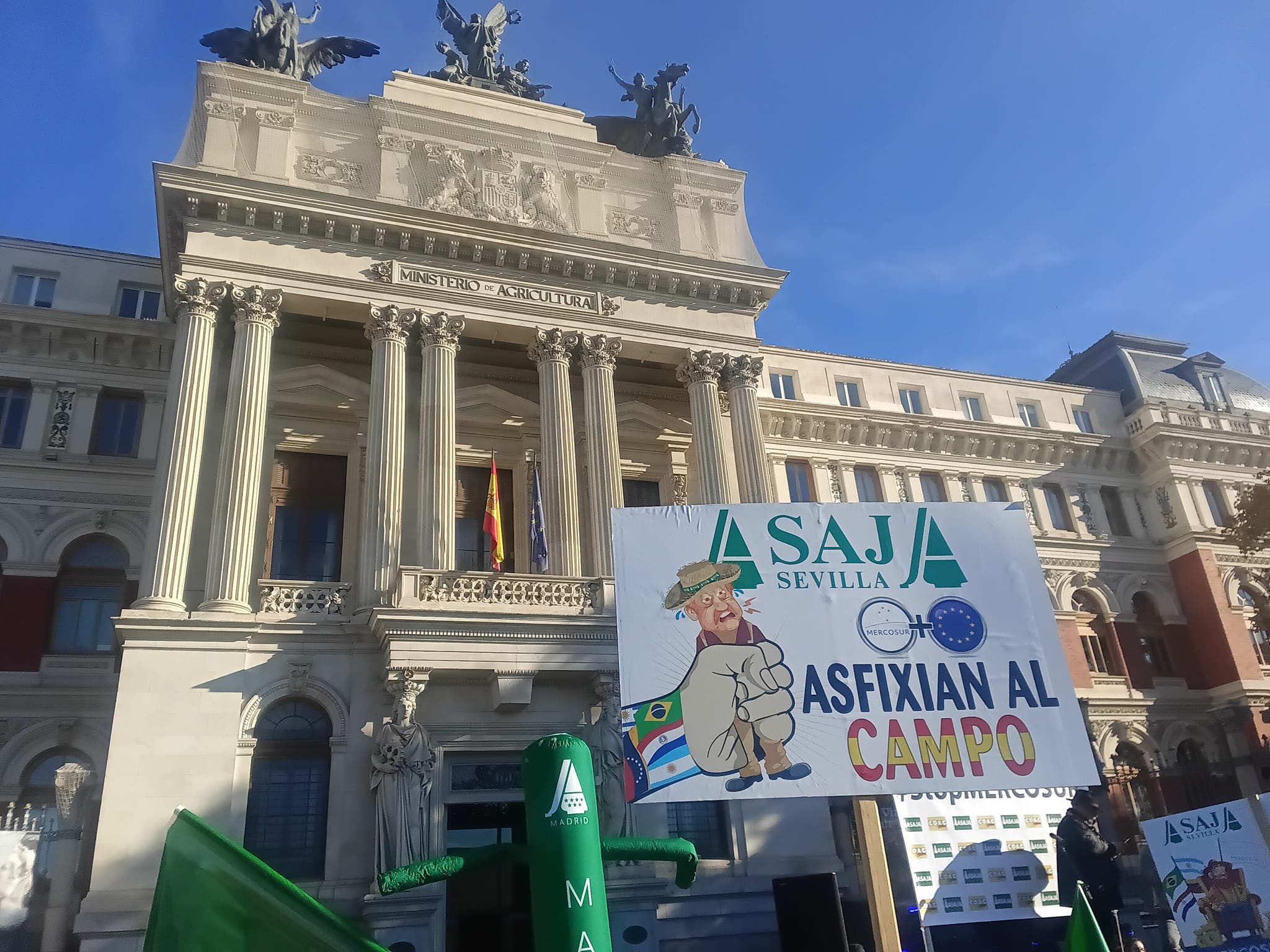IT may have limited appeal in predominantly industrial countries like former member Britain, but it’s one of the EU’s most important activities.
France, which dominated the early phases of the ‘Common Market’, insisted on it.
It’s the Common Agricultural Policy, or ‘PAC’ as it’s known in Spain. Perhaps the best way to think of it is as the annual handout of European money to small farmers in member countries.
Spanish farmers have always felt hard done by, compared to their French neighbours, and in 2024 they staged a series of ‘tractoradas’ – mass demonstrations by hundreds of tractors in Spanish cities.
READ MORE:
- Is a serial killer at work in Spain? Three farmers are found dead in very similar circumstances over a three-month period
- Farmers plan fresh protests in Spain as they plot to block border with France with their tractors
- Watch: Thousands of volunteers head to Spain’s flood disaster zones while farmers use their machinery to clean up the streets
As you’ll know if you’ve ever been stuck behind a tractor on a country lane, they are very slow and very annoying, and last year’s protests seem to have borne fruit. Spanish cities don’t want any more tractor protests. Saturday (february 1 2025) was the opening date for farmers to apply for EU grants, and changes in the regulations suggest that Spain will do very well in the 2025 round.
Farmers and ranchers will be able to submit the so-called “single application” from February 1 to April 30 to request the corresponding subsidies, for which Spain – the third recipient country of the PAC behind France and Germany – receives about €5 billion annually. Between 630,000 and 650,000 producers (ie, farmers) potentially benefit from Common Agricultural Policy funds in Spain between the “first pillar”, of direct payments, and the “second pillar” for rural development, but the period that opened on Saturday corresponded to the first.
In 2024, Spanish producers received €5.754 billion from Brussels, of which €4.833 billion were direct subsidies, and the rest from other support programmes such as the POSEI of the Canary Islands or the distribution of milk and fruit to schools.
The grants for the new campaign will be paid in December, but if Spain requests an advance payment, disbursement can begin in October.
Nuria Villanueva is the spokeswoman for “Co-operativas Agro-Alimentarias”, based in Castilla-La Mancha. She explains that the 2024 tractoradas were successful, because the EU was sometimes very tardy in paying the grants, but for 2025 the rules have been changed and henceforth Spanish farmers will get their money on time.
“Also, there’s a new opt-in subsidy,” she says. “Farmers who volunteer to use best environmental practices will get extra cash.” She gives the example of a farmer who has been growing sugar-beet in the same field for years.
If he agrees to leave the field untouched, he can apply for the eco-grant. “It allows the field to replenish its nutrients, and it gives wild flowers a habitat in which to sow and grow.” She points out that areas with very little rainfall need to encourage farmers to leave their fields covered by vegetation for as long as possible (this stops the sun from evaporating the moisture that’s in the soil).
“Grants like this will certainly help,” she says. But Ms. Villanueva thinks that, even with these welcome changes, the administration of the Common Agricultural Policy remains too bureaucratic. “Farmers should be out in the field, growing food,” she says, “not sitting at the kitchen table, filling-in forms.”
Agricultural Co-Operatives
As you move around Andalucía, you may have noticed “co-operatives” dotted about the landscape. Some of them are non-profit private organisations, and some are funded by the Junta de Andalucía. What exactly goes on in those places? If you think about it, farming requires a lot of heavy machinery which is used only at harvest time.
The oil has to be squeezed out of the olives, and the wheat has to be ground into flour. Most farmers simply can’t afford all that equipment. So the co-operative will take your crop and convert it for you (they keep a small percentage of your olive-oil as a ‘fee’) and you take the rest away with you.
Anyone can use their facilities!








